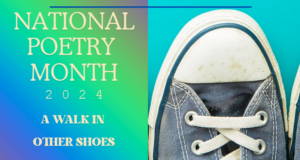Today is one in a series of drearily overcast, windy, drippy with fog, and chilly, but not really that cold days that are just… depressing. It’s a day to light candles and try to think of lighter things, as the heaviness of the sky presses in. In Scotland, we called days like these – with the requisite added rain – dreich. (Digression: I always wonder why some things catch on and others don’t – we’re all about our hygge [though I know very few English speakers who pronounce it properly], but people don’t seem to have found dreich as easy to love. At least it’s easier to say!)
I think my rather low state of mind is in response to a conversation. Several friends having recently received adult diagnoses of neurodivergence are navigating the responses and processing the news – and the reactions. While some embrace getting those diagnoses in adulthood, others are deeply resistant, holding a “What does it matter now? We’re out of school!” attitude. I get it: a diagnosis today won’t yank us back through a time machine and allow us the scholastic accommodation we needed, no. But, when I tried expressing some of what it does give people to discover – at last – that there’s a name for what they’ve struggled with their whole lives, and that there are reasons behind their feeling out-of-step, I heard, “I’m not going around telling people I’m defective. You can tell everyone on the internet that you are, and that works for you, but not for me.”
As my friend Claire always says, Jeez O! Ouch.
Here’s the thing: telling “everyone” on the internet that I’m “defective” does not, in fact, “work for me.” Every single time I use the word ‘dyscalculia’ or speak openly about my repeated failures to pass the state exams to teach in a public schools, for instance – it is hard. Every interview for Henri Weldon where a classroom teacher or librarian asked if the character was grounded in anyone I knew or my own life, it was hard. No one enjoys exposing failures. But if we don’t normalize disability through visibility, it will always be stigmatized. We will always rob people of feeling acceptance and joy in their identity. We will continue to allow people to blame themselves for a perceived deficit and internalize feelings of worthlessness to the “normal” neurotypical world. We will always have people hiding what they see as anomalous parts of themselves that are merely different, not bad. We will always continue to fail as a society.
It doesn’t “work for me.” Most of my life, it’s worked against me. But, it’s me – and I claim all of me, even the parts that don’t work like everyone else’s.
and untitled draft
Fear not: we are unbroken,
Though the world tried teaching shame,
Standing, we’re still outspoken.
Truths we hold our only token:
Who we are is all we’ll claim.
Unbowed, we are unbroken,
Though we’ve only just awoken
To a Self we used to blame.
Stand, and remain outspoken,
Our new-born courage oaken,
Solidly intent declaim –
“Fear? Not we. As the unbroken,
We cannot waste time soft-spoken.
Too much is riding on this game.
Stand and remain: outspoken.
Let acceptance you find soak in,
Stretch tall, fully as you claim:
Fearless, we are, unbroken,
Standing, we will remain outspoken.
